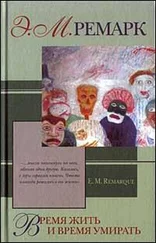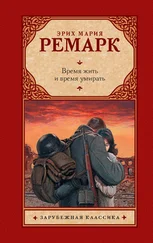| Erich Maria Remarque |
Эрих Мария Ремарк |
| Time to live and time to die |
Время жить и время умирать |
| CHAPTER I |
1 |
| DEATH smelled different in Russia than in Africa. |
Смерть пахла в России иначе, чем в Африке. |
| In Africa, under heavy English fire, the corpses between the lines had often lain unburied for a long time, too; but the sun had worked fast. |
В Африке, под непрерывным огнем англичан, трупам тоже случалось подолгу лежать на "ничейной земле" непогребенными; но солнце работало быстро. |
| At night the smell had come over with the wind, sweet, stifling and heavy-gas had filled the dead and they had risen like ghosts in the light of the alien stars as though they were fighting one last battle, silent, hopeless, and each for himself alone-but by the next day they had already begun to shrink, to nestle against the earth with infinite weariness as if trying to crawl into it-and if later they could be brought back some were light and dried out and the ones that were found weeks after were hardly more than skeletons that rattled loosely in uniforms suddenly far too big for them. |
Ночами ветер доносил приторный, удушливый и тяжелый запах, - мертвецов раздувало от газов; подобно призракам, поднимались они при свете чужих звезд, будто снова хотели идти в бой, молча, без надежды, каждый в одиночку; но уже наутро они съеживались, приникали к земле, бесконечно усталые, словно стараясь уползти в нее - и когда их потом находили, многие были уже совсем легкими и усохшими, а от иных через месяц-другой оставались почти одни скелеты, громыхавшие костями в своих непомерно просторных мундирах. |
| It was a dry death, in sand, sun and wind. |
Эта смерть была сухая, в песке, под солнцем и ветром. |
| In Russia it was a greasy, stinking death. |
В России же смерть была липкая и зловонная. |
| It had been raining for days. |
Дождь шел уже несколько дней. |
| The snow was melting. |
Снег таял. |
| A month earlier it had been three yards deeper. |
А всего лишь месяц назад сугробы были выше человеческого роста. |
| The ruined village, which at first had seemed to be nothing but charred roofs, had silently, night by night, risen higher out of the sinking snow. |
Разрушенная деревня, казалось, состоявшая из одних обуглившихся крыш, с каждой ночью бесшумно вырастала по мере того, как оседал снег. |
| Window frames had crept into sight; a few nights later the archways of doors; then stairways that led down into the dirty whiteness. |
Первыми выглянули наличники окон; несколько ночей спустя - дверные косяки; потом ступеньки крылечек, которые вели прямо в грязно-белое месиво. |
| The snow melted and melted,' and with the melting came the dead. |
Снег таял и таял, и из-под него появлялись трупы. |
| They were old dead. |
То были давние мертвецы. |
| The village had been fought over several times-in November, in December, in January, and now in April. |
Деревня много раз переходила из рук в руки - в ноябре, декабре, январе и теперь, в апреле. |
| It had been taken and lost and taken again. The snowstorms had come and covered the corpses, sometimes within hours, so deep that the medical corpsmen often could not find them-until finally almost every day had thrown a new layer of white over the devastation, like a nurse stretching a sheet over a bloody, filthy bed. |
Ее занимали и оставляли, оставляли и опять занимали, а метель так заносила трупы, что иногда, спустя несколько часов, санитары многих уже не находили - и почти каждый день белая пелена заново покрывала разрушения, как медицинская сестра покрывает простыней окровавленную постель. |
| First came the January dead. They lay highest and came out at the beginning of April, shortly after the snow began to slip. |
Первыми показались январские мертвецы, они лежали наверху и выступили наружу в начале апреля, вскоре после того, как снег стал оседать. |
| Their bodies were frozen stiff and their faces were gray wax. |
Тела закаменели от мороза, лица казались вылепленными из серого воска. |
| They were buried like boards. |
Их бросали в могилу точно бревна. |
| On a little hill behind the village where the snow was not so deep it had been shoveled away and graves were hacked out of the frozen earth. |
На холме за деревней, где снегу было меньше, его расчистили и раздолбили промерзшую землю. |
| It was heavy work. Only the Germans were buried. The Russians were thrown into an open paddock. They began to stink when the weather turned mild. When it got too bad snow was shoveled over them. It was not necessary to bury them; no one expected that the village would be held for any length of time. The regiment was in retreat. The advancing Russians could bury their dead themselves. |
Это была тяжелая работа. |
| Beside the December dead were found the weapons that had belonged to the January dead. Rifles and hand grenades had sunk deeper than the bodies; sometimes steel helmets too. |
У декабрьских мертвецов оказывалось оружие, принадлежавшее январским - винтовки и ручные гранаты уходили в снег глубже, чем тела; иногда вытаскивали и стальные каски. |
| It was easier with these corpses to cut away the identification marks inside the uniforms; the melting snow had already softened the cloth. |
У этих трупов было легче срезать опознавательные жетоны, надетые под мундирами; от талой воды одежда успела размокнуть. |
| Water stood in their open mouths as though they had drowned. |
Вода стояла и в открытых ртах, будто это были утопленники. |
| In some cases a limb or two had thawed out. |
Некоторые трупы частично уже оттаяли. |


![Агата Кристи - На краю [английский и русский параллельные тексты]](/books/32247/agata-kristi-na-krayu-anglijskij-i-russkij-paralle-thumb.webp)
![Сакс Ромер - Ведьмино отродье [английский и русский параллельные тексты]](/books/33237/saks-romer-vedmino-otrode-anglijskij-i-russkij-thumb.webp)
![Агата Кристи - Объявлено убийство [английский и русский параллельные тексты]](/books/33247/agata-kristi-obyavleno-ubijstvo-anglijskij-i-russ-thumb.webp)
![Фрэнсис Фицджеральд - По эту сторону рая [английский и русский параллельные тексты]](/books/34130/frensis-ficdzherald-po-etu-storonu-raya-anglijskij-thumb.webp)
![Мэри Райнхарт - Дверь [английский и русский параллельные тексты]](/books/34133/meri-rajnhart-dver-anglijskij-i-russkij-parallel-thumb.webp)
![Роберт Шекли - Компания «Необузданные таланты» [английский и русский параллельные тексты]](/books/34808/robert-shekli-kompaniya-neobuzdannye-talanty-angl-thumb.webp)

![Эрих Ремарк - Время жить и время умирать [litres]](/books/397303/erih-remark-vremya-zhit-i-vremya-umirat-litres-thumb.webp)